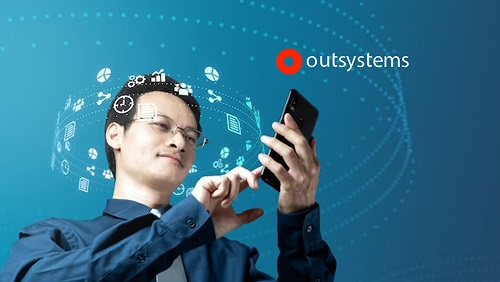OutSystems announced artificial intelligence (AI) features, including the general availability of its connector for Azure OpenAI – built jointly with Microsoft – as well as its roadmap for a suite of generative AI capabilities, codenamed “Project Morpheus.”
The offerings are the latest output of OutSystems dedicated AI research center and draw on its patents and expertise in large language models and graph neural networks. OutSystems’ use of AI delivers improvements in code quality, overall development performance and essential security and governance oversight.
“OutSystems is absolutely focused on developer productivity without tradeoffs,” said Paulo Rosado, founder and CEO of OutSystems. “When we developed our first product, software was a manual process and most development projects across every industry and company size shipped late and over budget. We heard this over and over again. This is where we directed our mission back then, and it’s how we’ve evolved it to today.
“Our AI platform makes dev teams orders of magnitude more efficient. Unlike other vendors who happily check the box on AI and speed, we know that’s just the surface,” Rosado continued. “Our deep investment in an AI-backed platform, with strict oversight and built-in governance, helps ensure every app meets the highest standards of enterprise readiness.”
In general availability, the OutSystems connector for ChatGPT makes it easy to build AI-powered applications with low code in a matter of minutes. By enabling developers to harness the power of generative AI within their applications, they can expand into new use cases and unlock possibilities with interactive conversational experiences.
Examples of this include enhanced customer support, virtual assistants, travel and booking applications, language translations, and more.
With Project Morpheus, developers can build apps that fit their unique requirements through rapid iteration and AI-powered assistance. Generative AI will create an initial version of an application in a matter of minutes, and then allow developers to customize the application with the AI engine giving real-time change suggestions that incorporate industry-standard best practices.
Key features of OutSystem’s generative AI roadmap include:
- Instant app generation using conversational prompts – Instead of writing code, developers can use natural language inputs to describe an application, and generative AI will do the heavy lifting of building the app. This adds efficiency and enables a broader talent pool to contribute to app development.
- AI-powered app editor offering ongoing suggestions – Leveraging the ecosystem of OutSystems apps to fine-tune complex generative AI models, OutSystems will provide full-stack suggestions, from data to UI, that can be used to change apps in an errorless experience.
- Real-time, full-stack, visual representations of app changes – To eliminate the “black box problem” created by generative AI — where prolific code creation can make it hard to verify what’s happening inside the system — OutSystems visual language makes it easy to validate the output of generative AI, while state-of-the-art compiler technology enables deterministic detection of threats and code patterns produced by generative AI mechanisms.
- Expansive ecosystem of connectors – Customers can build AI-powered apps in a matter of minutes with connectors to common services from Microsoft, Google, Amazon, and other third-party providers.
The new features focus on building highly adaptive app experiences that leverage the power of generative AI to accelerate time-to-market, empower more junior developers and non-coders and enable rapid change and interaction.
This ensures that any AI-generated apps continue to provide the same level of enterprise-grade features and limitless customizations that customers need to meet the complex demands being placed on IT.
Learn more at www.outsystems.com.









